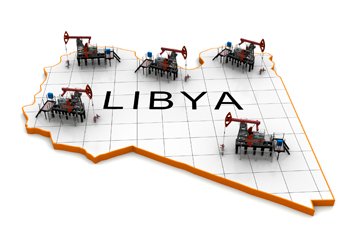Crude oil production from the Organisation of the Petroleum Exporting Countries (OPEC) fell to 30.28 million barrels per day (b/d) in August, a drop of 60,000 b/d on July.
The reduction was caused by disruption in Libya, according to the Platts survey of OPEC and oil industry officials.
Strikes and protests in the North African country pushed production below 300,000 b/d towards the end of the August. Output for the month sank to 560,000 b/d – significantly lower than the one million b/d produced in July.
Saudi Arabia boosted output by 220,000 b/d in August to 10 million b/d and production in Iraq recovered to 3.15 million b/d, an increase of 170,000 b/d on July. Ecuador, Iran, Kuwait and the UAE all saw small increases as well but none of this was enough to offset the huge cut in Libyan production.
The Libyan ports of Marsa el-Hariga, Zueitina, Ras Lanuf and Es Sider have all been closed due to protests by security guards, as has the crude pipeline linking the El Sharara and Elephant fields with the northern export terminal at Zawiya and the Brega refinery. Output plateaued at 240,000 b/d in early September according to the Nouri Berruien, the head of Libya’s National Oil Corporation.
The problems in Libya and anticipation of American intervention in Syria pushed the price of Brent crude above $117 (£74) per barrel towards the end of August.
Having been above 31 million b/d for most of last year, OPEC production dropped to 30.65 million in December and has been on a downward trend since.
John Kingston, Global Director of News at Platts said: “The plunge in Libyan production draws attention to OPEC and what it can – and can’t – deliver and this report clearly shows where the problem areas are.
“Apart from sanctions-strapped Iran and Libya itself, a number of other OPEC countries are facing production challenges. This concentrates focus on Saudi Arabia …and begs the question: will Riyadh be able and willing to maintain or exceed this level if the world needs more oil?”
Last month the International Energy Agency trimmed its forecast for growth in global oil demand for 2014.





